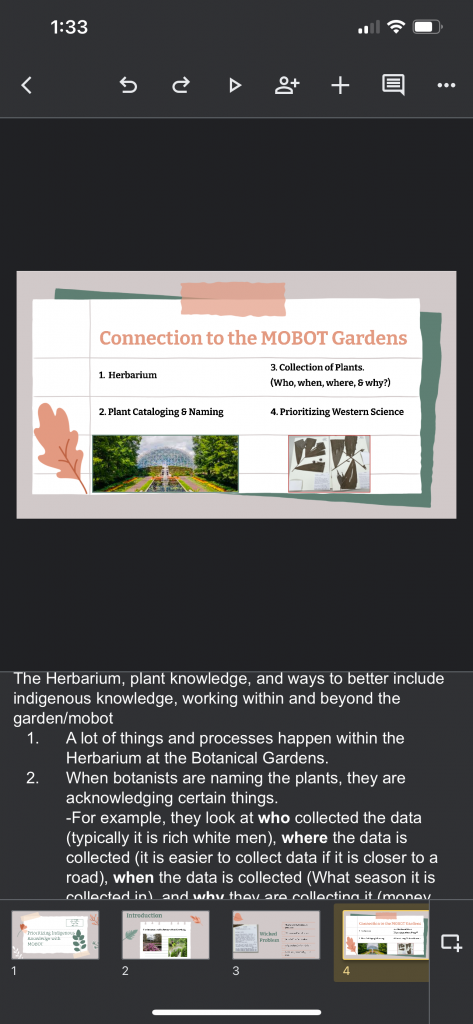Introduction
Being in a CODES research team was quite a challenge and a different approach to learning for me. CODES is such a unique class since you basically grade yourself. It makes you realize the things and outcomes you should progress more in. I obviously enjoyed going to the Gardens the most because it gave me a better sense in what we are doing as a research team and class. I really struggled with keeping things pretty organized technology wise. Something I want to progress more in is of course global learning. I feel as if this whole class is based on global learning. Another thing I was hoping to advance in was oral communication. I struggle with bad anxiety and practicing speeches and presentations in front of others can help me.
Goal 1
10%
9B: Identifies and evaluates multiple approaches for solving problems.
[I feel as if MC # 1 ties into this because Wicked problems have different approaches to them. What I mean by that is wicked problems can either be irreversible, vague, unique, urgent, undefined, or no endpoint. This means that people have to take different approaches to these problems in order to fix them. My MC #1 takes a dive into the different problems the gardens go through with wicked problems. It talks about the actions we should take as individuals to better the society. )
Goal 2
30% 12C
| Works independently towards goals by contributing and meeting deadlines |
[I contributed to my work greatly by taking the time to revise my source analysis and MC’s. All those documents have a date of when i edited the papers.)
(I have also worked hard on making a good and welcoming intro for our indigenous knowledge slideshow. even though I was sick with covid during the process, I still got my part done before the deadline. Nov 17th)
Indigenous Knowledge Slide
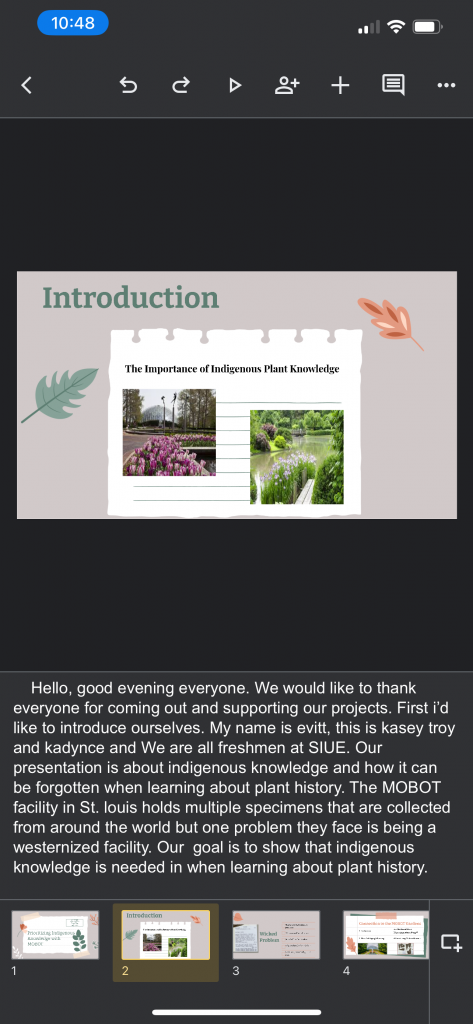
(MC #1)
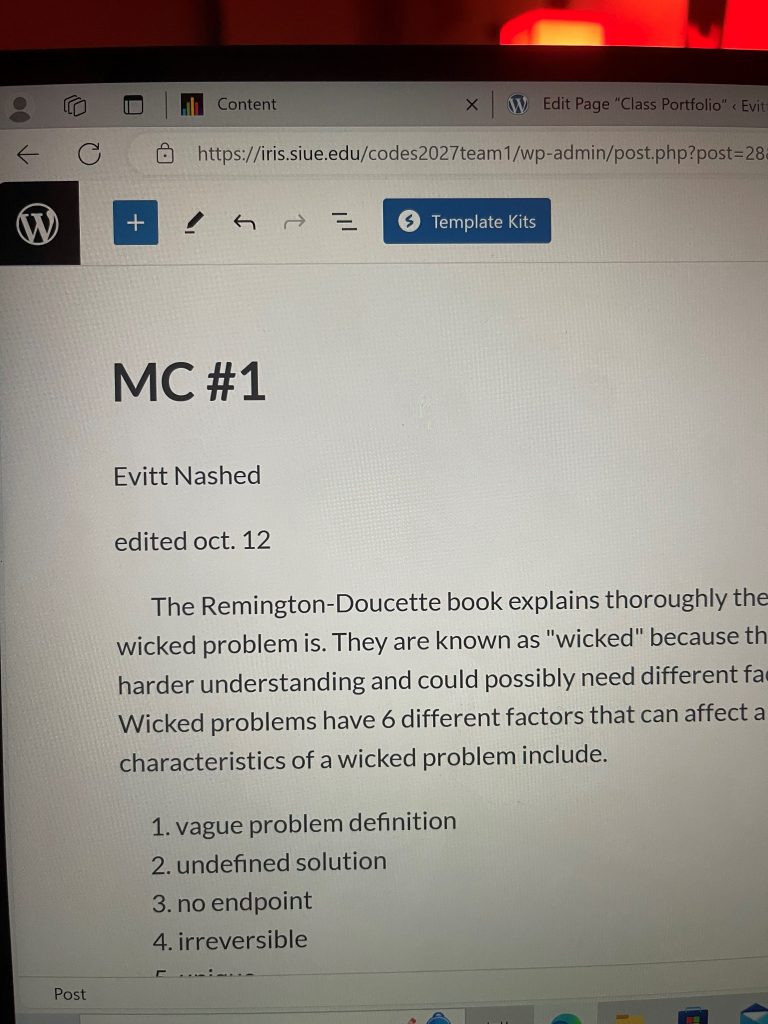
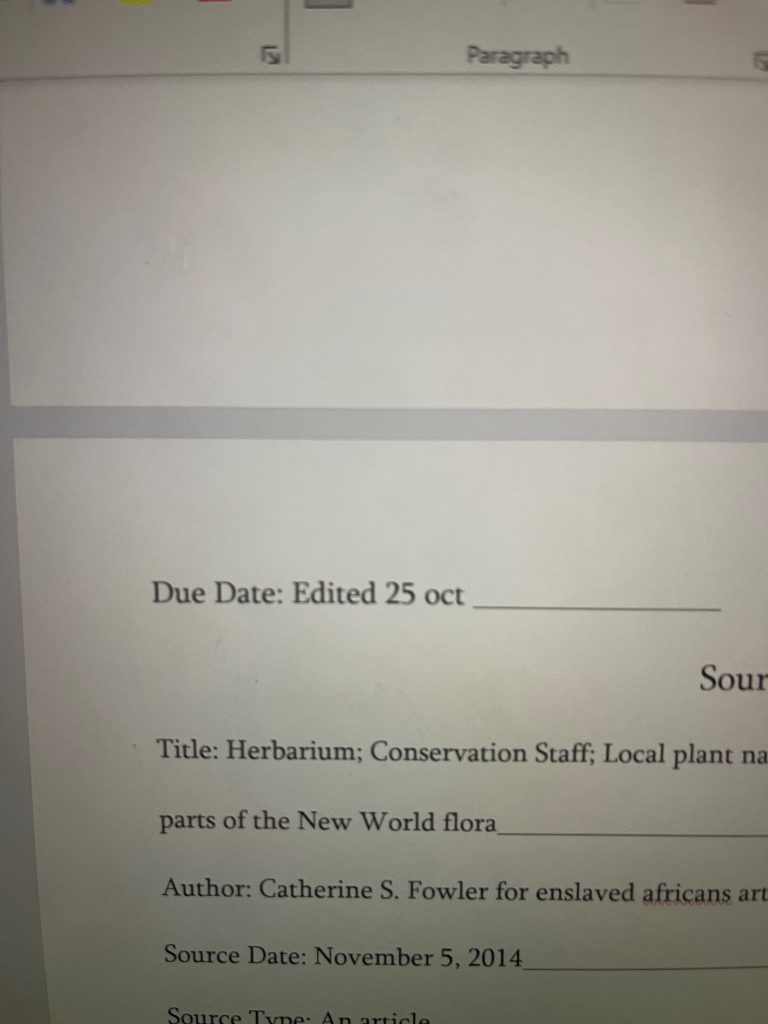
(SA # 3 )
Goal 3
30% 13 A-C
[written communication]
[Revising my papers in a more formal way. MC #1 was changed a lot, and I took a different approach to the tasks. I took your advice and did what was needed. I worked hard to put a lot of effort into it. Proof of my revision of MC #1 is available in WordPress.]
(I feel as if my indigenous knowledge slide ties into this goal. it didn’t take me one tries but 3 tries to make a good intro. I had to think about who would be there, and how I can grab people’s attention into listening to our project. It did help that we were the first group to go up.)
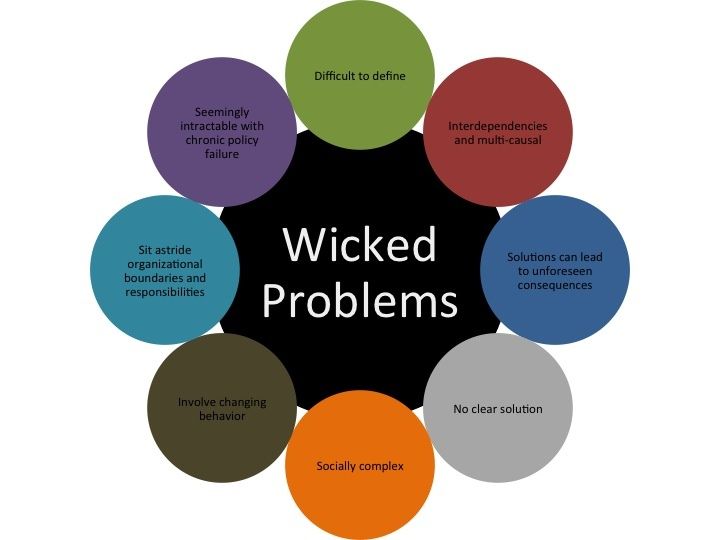
This picture was deleted and replaced by the one below.

Goal 4
15% 8 A- C
[oral communication]
MC # 2 has clear, good pictures and videos of the direct problem of Midwestern colonization and the extractive practices within it. I also developed the comfort of asking you for help when needed. For example, I contacted you about losing my SA’s even though it was my fault you still helped me. This made me feel comfortable asking you questions more often.
The indigenous knowledge showcase was a big goal for me to accomplish. I have struggled with talking in front of crowds and this project really helped me into getting over my fear. I had my part memorized so then I can make full eye contact with everyone. I also tried my best at talking slow and clear.
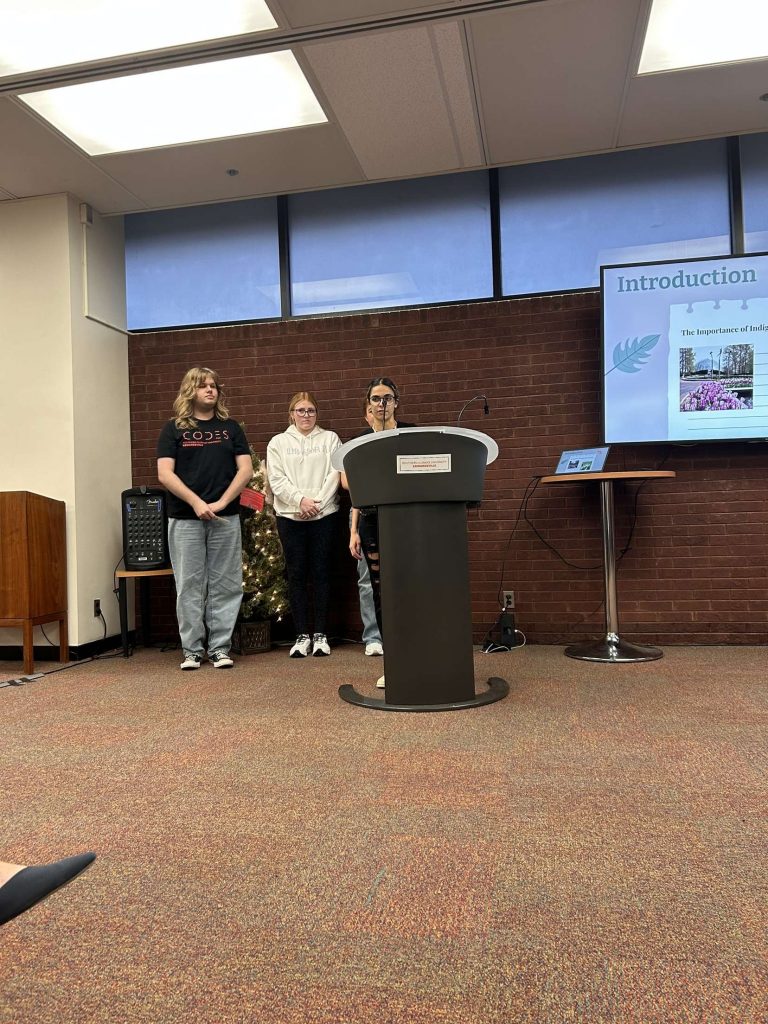

pic from MC #2
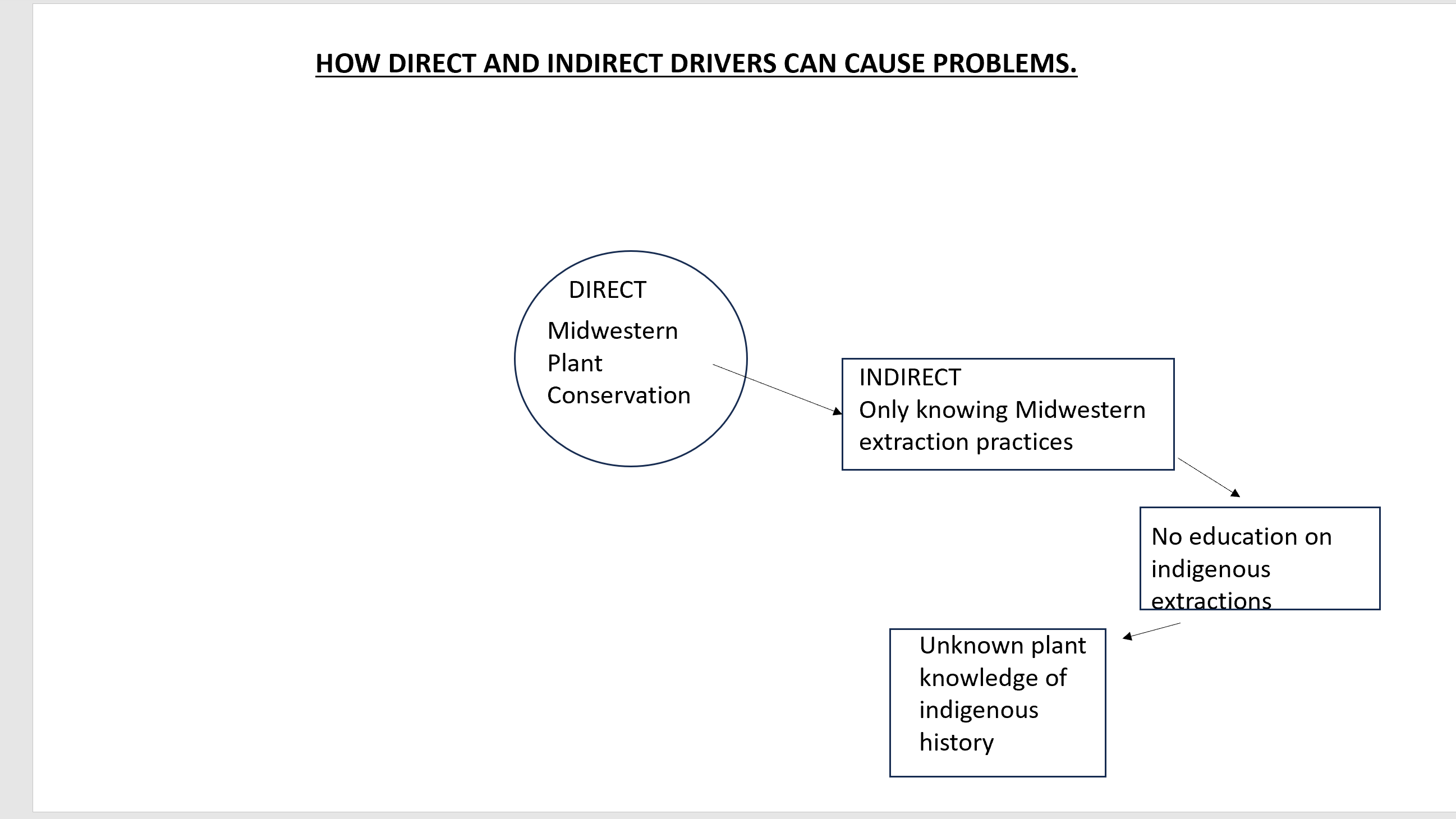
pictures from MC # 2
Goal 5
15% 4 A-C
[global learning]
SA # 3 is a good example of the global knowledge I learned from the article, “Local plant names reveal that enslaved Africans recognized substantial parts of the New World flora.” I learned that enslaved people used their own unique names of plants that we as people don’t use today. Global learning can give us more information about the past that was once forgotten. This aspect helped me learn more about enslaved people and the knowledge they brought to the US. MC #2 also shows that I achieved global learning by talking about how indigenous knowledge is important to the history of conservation. I included a video of why indigenous knowledge is important in MC # 2.
(Lastly, the showcase project helped overall in learning about global aspects and how we can use indigenous knowledge to learn about plants. It gave a brief discussion about how indigenous knowledge can give us much more information about plants. )
